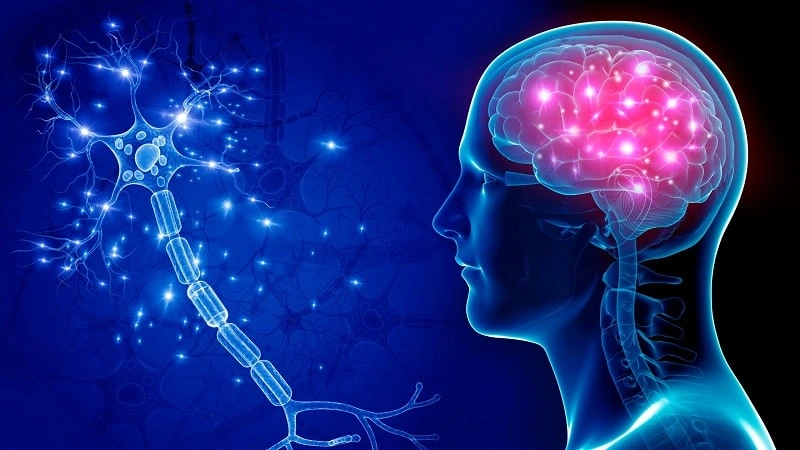As women journey through the transformative phase of menopause, their bodies undergo a series of changes. Amidst this transition, intriguing questions arise. Can menopause cause tingling in face? This question holds significance because menopause, a natural phase marking the end of reproductive years, brings forth a range of physical and emotional shifts.
The possible link between menopause and facial tingling piques curiosity, as it touches upon the intricate interplay of hormones and bodily responses.
By exploring whether menopause can indeed cause tingling in the face, we shed light on an aspect of women’s health that may impact their overall well-being.
Can Menopause Cause Tingling in Face?
When considering the question of whether menopause can lead to tingling sensations in the face, it’s important to delve into the potential connections between hormonal changes and nerve sensitivity.
Understanding Tingling Sensations
Tingling sensations, often described as a “pins and needles” feeling, occur due to altered nerve signals reaching the brain.
These signals can arise from various factors, including changes in blood flow, nerve compression, or heightened nerve sensitivity.

Hormonal Fluctuations and Nerve Sensitivity
During menopause, hormonal fluctuations, especially the decline in estrogen levels, can impact nerve function and how sensations are perceived.
Estrogen has a role in maintaining nerve health and influencing their responsiveness.
Facial Tingling and Hormones
While facial tingling can have multiple origins, including stress and other medical conditions, hormonal changes during menopause might contribute.
Some women report experiencing tingling sensations in the face as their bodies adjust to the new hormonal balance.
Read Also: Menopause and Anger Toward Husbands: All You Need to Know
Considering Other Causes
Keep in mind that tingling in the face could also be a result of factors unrelated to menopause.
Conditions like anxiety, vitamin deficiencies, or nerve disorders can also manifest as facial tingling. A thorough evaluation by a healthcare professional can help pinpoint the cause.
The Role of Hormones
Hormones are like messengers in the body, orchestrating various processes to keep things balanced.
They influence growth, metabolism, mood, and even how our nerves communicate with the brain.
Estrogen: A Key Player
Among these hormones, estrogen holds a pivotal role. It’s not just about reproductive health; estrogen affects bones, skin, mood, and more. When estrogen levels shift, it can ripple through the body, causing various effects.
Estrogen’s Influence on Nerves
Estrogen is known to have a protective effect on nerves. It supports nerve structure and function, ensuring they can efficiently transmit signals. Changes in estrogen levels, as seen in menopause, can influence nerve responsiveness.
Nerves and Sensations
Nerves are like highways, carrying signals to and from the brain. When they function smoothly, we experience sensations normally.
However, when their function is altered—due to hormonal changes, for instance—we might experience sensations like tingling.

Hormones and Perception
Estrogen’s impact on nerve health can shape how we perceive sensations. As estrogen levels fluctuate, nerve signals might become more sensitive or less responsive.
This can contribute to tingling sensations in various parts of the body, including the face.
Treatment and Management
When facing menopausal symptoms, including tingling sensations in the face, there are various approaches to consider for treatment and management.
Lifestyle Modifications
Simple lifestyle changes can make a significant impact. Regular exercise, a balanced diet rich in nutrients, and stress reduction techniques like yoga or meditation can help manage both physical and emotional symptoms.
Hormone Replacement Therapy (HRT)
HRT involves supplementing the body with hormones that decline during menopause, such as estrogen and progesterone.
It can alleviate symptoms like hot flashes and mood swings, but it’s important to weigh the potential benefits against risks.
Non-Hormonal Therapies
For women who can’t or prefer not to use HRT, non-hormonal therapies can provide relief.
Certain medications, such as antidepressants or anticonvulsants, have shown effectiveness in managing symptoms like hot flashes.

Alternative and Complementary Approaches
Some women explore alternative therapies like acupuncture, herbal supplements, or dietary changes.
While these methods vary in effectiveness, it’s essential to consult a healthcare provider before trying them.
Read Also: How to Treat Menopause Body Odor?
Consulting a Healthcare Professional
Whether considering HRT, non-hormonal options, or alternative therapies, consulting a healthcare provider is crucial.
They can guide you in selecting the most suitable approach based on your individual health profile and preferences.
Conclusion
In the intricate realm of menopause and its potential link to tingling sensations in the face, we’ve uncovered a web of hormonal changes and nerve sensitivities.
As estrogen levels fluctuate, nerves throughout the body, including those in the face, might respond differently, leading to sensations like tingling.
It’s essential to understand that while menopause can contribute to these sensations, other factors such as stress, medical conditions, and lifestyle choices can also play a role.
Consulting a healthcare professional is paramount to accurate diagnosis and personalized guidance.
By comprehending the multifaceted nature of menopause, individuals can address various symptoms, including facial tingling, through tailored strategies.
From lifestyle adjustments to medical interventions, each woman’s journey is unique.
Ultimately, embracing knowledge and seeking appropriate medical support empowers women to navigate this transformative phase with confidence and well-being.
Frequently Asked Questions (FAQs)
1. Can menopause really cause tingling in the face?
Yes, menopause can potentially lead to tingling sensations in the face due to hormonal changes impacting nerve sensitivity.
2. Are hormonal fluctuations the only cause of facial tingling during menopause?
No, while hormonal changes are a factor, other causes like stress, medical conditions, or nerve disorders could contribute.
3. How does estrogen influence nerve sensitivity?
Estrogen supports nerve health and responsiveness. Its fluctuation can influence how nerves transmit signals, potentially leading to tingling sensations.
4. What other symptoms are common during menopause?
Hot flashes, night sweats, mood swings, fatigue, changes in sexual health, and bone health concerns are some common symptoms.
5. Can lifestyle changes help manage menopausal symptoms?
Yes, adopting a balanced diet, regular exercise, stress reduction techniques, and sufficient sleep can significantly alleviate symptoms.
6. What is Hormone Replacement Therapy (HRT)?
HRT involves supplementing the body with hormones like estrogen and progesterone that decline during menopause to manage symptoms.
7. Are there non-hormonal therapies for managing menopausal symptoms?
Yes, medications like antidepressants or anticonvulsants, as well as alternative therapies like acupuncture, can be considered.
8. How do I decide on the right treatment approach for me?
Consult a healthcare professional to discuss your symptoms, medical history, and preferences. They can guide you toward the most suitable options.
9. Is it normal to experience tingling in other parts of the body during menopause?
Yes, tingling sensations can occur in various body parts due to the interconnected nature of nerves and hormonal changes.
References
- García-Segura, L. M. (2019). Hormones and brain plasticity. Dialogues in Clinical Neuroscience, 21(4), 345-352.
- Santoro, N., & Epperson, C. N. (2019). The menopause transition: A 50-year perspective. The Journal of Clinical Endocrinology & Metabolism, 104(12), 4978-4997.
- North American Menopause Society. (2015). The 2017 hormone therapy position statement of The North American Menopause Society. Menopause, 24(7), 728-753.



